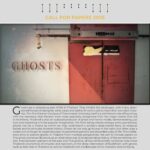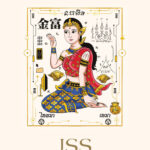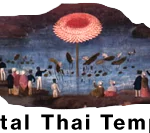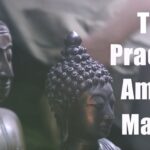This is essentially a review of ‘The Buddhist Monastic Code’ by Thanissaro Bhikku. The book covers all 227 of the rules for monastic discipline that are attributed to the Buddha. It cites their origin stories and goes over some discussion and debate regarding their implementation It’s the often bizarre origin stories that make the book interesting to anyone who is not intending to follow the Vinyana, particularly the many stories of a saucy bent.
The Vinaya is organized into several layers according to the seriousness of the offense. There are only four ‘Parajika’ or ‘defeat’ offenses which incur immediate and permanent exclusion from the Sangha. These are penetrative sex, – including inserting your own penis into your anus, if you are able – clear cases of stealing, intentional murder and boasting of ability to attain a superior human state. The latter is an act so low that the Buddha considered it was ‘better to have your belly slashed open with a sharp butcher’s knife’ than be guilty of it.
There are then thirteen Sanghadisesa, offenses which require immediate meeting and discussion of the local Sangha. These include intentional discharge of semen, for which ‘as a gift to insects’ is not a valid excuse. Certain offenses, including even some Parajikas, are admissable on the grounds that ‘a demon had plied open one’s mouth and entered one’s heart in order to control one.’
There are many rules about small matters, particularly about the type of robes that one is allowed to possess at particular times of the year. A monk may not ask a nun to wash his robe because, once, a monk taught dharma to a nun while exposing his genital organs to her. She too sat in such a way that she was exposing her genital organs and he emitted semen onto his robe. She offered to clean his robe for him, which he accepted, but then managed to impregnate herself using the stain. This led people to spread rumors that the Buddha’s order of monks could not be all that well-disciplined, as they were going around impregnating nuns. Hence, the Buddha made the rule that monks should not ask nuns to wash their robes. Many, perhaps the majority, of the rules in the Vinaya seem not so much as to be as rules for the monks to help them develop themselves, as rules to ensure that the public respect and continue to support the Sangha.
Pacittiya or ‘make known’ offenses must be confessed. These include lies, even white lies or lies for ‘a laugh’. Insulting someone for a laugh is also not allowed. You can also not lay down with an unordained person for more than two or three nights in the same place. This rule is followed by a lengthy debate which has gone on over the years as to what precisely ‘place’ means. ‘Is it fully-rooved and mostly-walled or half-rooved and fully-walled?’ and so on. Here we also discover that the origin story of the prohibition on monks digging is not, as is often said, in order to prevent them from being involved in agriculture. Rather, it is because at the time of the Buddha, the Jain’s and other religious sects held that soil was possessed of a low level of consciousness, that only of touch. This rule seems to have been made as a concession to Jains and those with similar sympathies. The same goes for the cutting of trees. Tree in Pali is ‘butagama’ which means ‘home of a being’. The origin story of the rule against monks cutting trees tells of a monk who cut down a tree, greatly offending the resident devata (female angel) who demanded redress from the Buddha himself, so the Buddha made this rule. It is pleasant being brought into the world of ancient India (although one suspects that many aspects of later life in early Ceylon have crept in). One debate which I enjoyed is ‘when is dawn?’ Various opinions are discussed. Is it the appearance of a particular hue of red on the horizon or perhaps it is the first touching of that red on the clouds? The current Thai practice defines dawn as that time at which one can naturally see without aid the lines on one’s own hand at arms length.
There then comes many Sekhiya or ‘training rules to be observed’. They do not incur any punishment. Thai people always talk with great amazement and admiration about the ‘two-hundred and twenty-seven!’ rules that monks have to observe. Laypeople are expected to observe five, but Thai people talk about the 227 as though the burden on the monks was forty-five times that of laypeople. However, most of the rules in the Vinaya are really rather petty and not rules that one can imagine it would be particularly hard to follow. For example, Sekhiya 39 ‘Do not eat taking an extra large mouthful’ Sekhiya 50 ‘not to eat while smacking one’s lips’ Sekhiya ‘not to eat while licking the lips’ 73 ‘monks cannot urinate while standing up’ 57 ‘monks should not teach to somebody who is holding an umbrella’.







